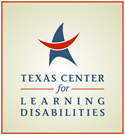Alfieri, L., Brooks, P. J., Tenenbaum, H. R., & Aldrich, N. J. (2011). Does discovery-based instruction enhance learning? Journal of Educational Psychology, 103(1), 1–18.
Summary by Dr. Michael Vaughn
Background
Although there are many definitions of “discovery learning,” in essence, it is an approach that does not give learners specific goals and instead allows learners to independently discover patterns and meanings from provided materials. However, within the discovery framework, there is room to offer either unassisted or assisted instructional guidance. Advocates of discovery learning cite both the limitations of the lecture approach and the promise of constructivist approaches, which theorize that learning and memory are maximized when learners have considerable input in or control over their own learning.
Despite the intuitive appeal of discovery learning, questions remain. For example, how much structure or guidance is necessary? Does discovery itself need to be taught? With these questions in mind, the study by Alfieri, Brooks, Tenenbaum, and Aldrich assessed (1) whether unassisted discovery-based instruction was superior to explicit instruction and (2) whether enhanced, more explicit discovery-based instruction was superior to comparison instructional approaches (e.g., explicit instruction, unassisted discovery). To investigate these questions, the study used meta-analytic review methods (analysis of a total of 164 studies and 940 comparisons). See the Study Design section of our January 2013 column for a more detailed description of meta-analysis and our November 2012 column for more information about effect sizes.
Major Findings
The first set of results favored explicit instruction over unassisted discovery-based instruction (d = -0.38). The second set of analyses favored enhanced discovery-based instruction over other types of instruction, such as unassisted discovery or explicit instruction (d = 0.30). Both of these results are statistically significant (p < .001). Effects of these magnitudes are generally considered to be small to moderate, but the findings are likely meaningful and of high interest, given the number of students involved and the general interest in discovery-based instruction.
The researchers carried out additional analyses to identify whether any important factors, such as type of enhanced discovery instruction or domain of instruction, might affect the results. These analyses revealed that guided discovery was superior and found the largest effects for computer skills, physical and motor skills, and verbal and social skills. The smallest effects were found for science and math, but these results still favored enhanced discovery methods. Enhanced discovery was particularly effective for adult learners.
Benefits and Limitations of the Study Design
This meta-analysis appears to be well conceived and the procedures well executed. The researchers compared discovery approaches with a large number of comparison conditions, adding confidence in the overall results. If carefully executed, meta-analyses are an invaluable method for taking stock of research findings. However, every study has its limitations, and this one is no exception. One of the major limitations to all meta-analyses is the quality and content of the studies themselves. In this case, many of the discovery methods were not clearly articulated, making it impossible to specify which specific teaching techniques within the enhanced discovery framework worked best.
General Conclusions
Discovery-based instructional approaches should be guided and explicitly rendered to reach their full impact. Direct teaching and employing worked examples are likely more effective than unassisted discovery.
Specific Recommendations
- When using the discovery learning framework, incorporate enhanced approaches such as guiding learners with scaffolds and feedback. Learners should be able to explain their ideas as a form of active engagement. Although guided discovery may take more planning and effort, it appears effective in almost all instructional domains.
- When deciding on an instructional domain in which to use enhanced discovery methods, keep in mind that strongest effects were found for computing skills, physical and motor skills, and verbal and social skills.
